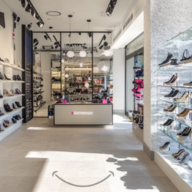Reimagining Talent Transformation for the future of Retail

Retail
214 week ago — 7 min read
Presenting some key insights from the first edition of the Retail Learning & Development Summit 2021 that put the spotlight on the critical but hitherto unrecognised function of retail.
The pandemic has reshaped the way Learning & Development, and training are being valued and delivered in organisations. As businesses continue to grapple with the ripple effects of last year, Leadership & Organization Development (L&OD) teams have to work fast and partner with all stakeholders to help achieve new organisational goals and align the workforce as per the new strategies. L&OD as a function has assumed a critical role in the past few months in helping organisations adapt to the changes. The recently concluded first edition of the Retail Learning & Development Summit 2021 put the spotlight on this critical change in business dynamics. The virtual summit was designed around the theme Reimagining Talent Transformation for the future of retail.
In a keynote address, Raj Raghavan, Senior Vice President & Head of HR, IndiGO said that, “It’s necessary to be flexible on the details but firm on the vision. The year 2020 helped us learn the real meaning of what it means to be agile.”
Over the two days, four riveting panel discussions had retail CEOs, CHROs and CLOs deliberating on the many aspects of Learning & Development in the context of the New Normal. As seen during the pandemic, it was learning that helped talent adapt to the drastic changes and survive. Learning will now continue to remain at the heart of talent management as a business strategy.
"It’s necessary to be flexible on the details but firm on the vision. The year 2020 helped us learn the real meaning of what it means to be agile." - Raj Raghavan, Senior Vice President & Head of HR, IndiGO
Speaking on the panel ‘Learning without boundaries: Redefining the role of a CLO’, Rajiv Nair, CEO, Kaya Limited, spoke about building a definite culture, a common set of values and a strong vision to succeed in a difficult environment such as today. “First and foremost requirement for any retail professional is to contribute to the business success. The learning initiatives must be designed to fulfil measurable business objectives,” Rajiv Nair explained.
Speaking on the same panel, Manish Kapoor, CEO, Pepe Jeans, added “Learning structures have always been attuned to deliver incremental results and never exponential results. This is the biggest change that needs to come across. Learning structures now have to evolve to the capability of defining the capability and skill gap of tomorrow.”
Speaking about the duties of a CLO, Sadashiv Nayak, CEO, Big Bazaar, said, “How does the CLO maintain the Curiosity in the organisation, which is Adhbudh Rassa, and bring the ‘wholesomeness’ together in customer experience?”
On the same panel, Himanshu Chakrawarti, CEO – Unlimited, Arvind Lifestyle Brands Limited, added, “With the markets opening up, attrition will happen. It is our duty to slow it down and increase business efficiency by making sure employees are happy.”
Today, 78% of HR leaders view employee wellbeing as a critical component of their business strategy. Though 97% agree that wellbeing positively influences engagement, only a quarter of companies treat wellbeing as a priority.
The recent experiences have taught organisations the value of financial prudence and the need to ensure return on investments (ROI) on every rupee invested. The second panel on the first day had panellists talking about the ‘Virtual benefits: Measuring the impact and ROI of virtual learning’, is it helping meet the organisational goals?
On translating learning into value out of the learning function Eva Lorge, Country Talent Development Head, IKEA India, said that at the time of recruitment, it is important to understand the passion and what does the talent wants to do within the company. Mukta Nakra, HR Head, Marks & Spencer - Reliance India Pvt. Ltd. added that value from the learning function can be derived out of how we drive organisations culture and integrated it in the way people build their careers within your organisation. Kriti Jain, Associate Director - Human Capital, Myntra, added that it is important to have a buy in from the business stakeholders to drive in the real change.
Today, 78% of HR leaders view employee wellbeing as a critical component of their business strategy. Though 97% agree that wellbeing positively influences engagement, only a quarter of companies treat wellbeing as a priority. Deliberating on ‘Role of L&D in ensuring holistic employee wellbeing, Diya Suri, Director - People Resources, Hardcastle Restaurants, said that the organisation has to believe that a person can make a difference and add value, no person comes to work with the intent of doing a bad job. Aniruddha Mahajan, Customer Care Associate & AVP - HR, Shoppers Stop, added that when the employee comes to work it brings along many aspects of wellbeing from emotional to its social and financial wellbeing aspects, and all these have to be taken care of to make a holistic transformation.
In today’s VUCA world, organisations need to be more adaptive and agile so they are able to better manage crises. Discussing ‘Fostering a Learning Culture for Performance, Creativity and Resilience’, Bidisha Banerjee, Group VP Learning, Culture & Employer Branding, Welspun Group, said that what worked for Welspun is to keep learning ‘Relevant’, impart it ‘Digitally’ but keeping it ‘Democratic’. While, Alex Mathew, Head - Human Resources, Max & Easybuy, said that they have kept the momentum of informal learning going, by being able to give feedback in real time.
Also read: The road ahead for retail businesses
To explore business opportunities, link with us by clicking on the 'Invite' button on our eBiz Card.
Image source: shutterstock.com
Article source: STOrai Magazine
Disclaimer: The views and opinions expressed in this article are those of the author and do not necessarily reflect the views, official policy or position of GlobalLinker.
View STOrai 's profile
Other articles written by STOrai Magazine
The Art & Science of People Pleasing in Retail
22 week ago
Most read this week













Comments
Share this content
Please login or Register to join the discussion